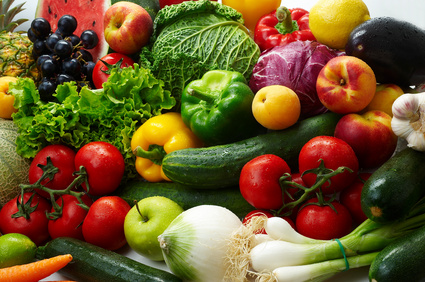I have listed 5 methods of the many available when considering a nutrition protocol for weight loss. The fundamentals must exist when choosing your protocol but the protocol must also be fit with your lifestyle and level of engagement, choosing a protocol that is too drastic for you will lead too poor compliance and ultimately failure but choosing something you can stick to may not be optimal but provide you with good results still.
1) Habit change
Simply record a food diary for 7 days with a rough guide to food quantities and timing of meals as well as fluid intakes including tea, coffee, soda and alcohol which will give you an overview of your current diet. You may know exactly what area you wish to change already but this will give you a better picture as to what you eat over the course of a week, which often comes as a surprise to many.
Now identify one habit you wish to implement into your diets such as a fruit and vegetable target or something you wish to remove from your current nutritional intake that could be along the lines of alcohol or you find your self at the vending machine between meals.
Now act upon this by adding in or removing your chosen habit for 3-5 weeks. I would recommend 3 weeks as a minimum to ensure the habit has been achieved before working towards your second habit and you build from here.
Pro:
Available to everyone, great for the obese with bad habits
Cons:
People may struggle with choosing an appropriate habit, simple in theory but harder to execute in reality.
2) Meal plans
By taking the choice away from the individual it can make dieting a lot less stressful and room for error decreases. Having a professional develop a meal plan can be a good way for a beginner to stick to a protocol as they struggle with the flexibility of other methods such as IIFYM which can be confusing and overwhelming for beginners. This keeps high-calorie foods that are extremely palatable out of reach, which often leads to overeating and eventually weight gain. Long term this isn’t something you should stick with as you may develop certain nutrient deficiencies if not varied enough and a bad relationship with food groups can develop but for a beginner starting out this is a great tool to start the wheels moving.
Pro:
Easy to use, removes stress around choice and can hit calorie target consistently
Con:
Can become tedious, without variety or changing of meal plan nutrient deficiencies may occur, assistance may be needed in creating the meal plan
3) Calories & protein tracking
One of the best methods for tracking food when body composition is a priority yet has a good amount of flexibility around food groups. Using certain apps that track your food you can set the overall calorie target depending on whether you want to gain or lose weight as well as have a sufficient protein intake while being flexible with the rest of your macronutrients i.e. fats and carbohydrates.
Having a good amount of flexibility creates adherence for dieters, as they don’t have to miss out on social events with friends and family yet having those two targets to hit leads to great results for those who adhere to it properly.
Pro:
Teaches portion sizes, being consistent with calories gives you the ability to make changes when change is needed, and flexibility around food creates adherence
Con:
Requires technology not everyone may have, requires weighing of foods which can be troublesome when cooking in bulk or eating out
4) Flexible dieting/ IIFYM
Probably the most talked about nutritional protocol in the last 18 months!
I would say this is the more advanced version of calorie and protein tracking. Now you’re going to track your fats and carbohydrate intake also which requires a higher amount of dedication from the dieter and suits people who are very detailed oriented.
You still have a flexible approach to eating in the sense that you can eat food groups that you wish and enjoy but you must have achieved a certain target for protein, fat, and carbohydrate by the end of each day.
Pro:
Accuracy, macro targets hit, and some flexibility left with your food groups
Con:
You will need a tracking app, means weighing all your food, unnecessary for the general population
5) Intuitive eating
It is suggested that you eat intuitively with your hunger signals and your sense of fullness when eating. This can take years to achieve an accurate indication of food quantities and even then you can be wrong especially when eating processed foods. For most people, this is almost impossible as the default in this country is being overweight because we have such accessibility to foods and our satiety signals such a leptin and ghrelin are often out of balance in overweight individuals giving us a poor judgment of fullness and hunger.
On many occasions, we humans tend to eat or drink not down to hunger but because of our emotions around food which another factor to consider when considering your dietary plan.
Pro:
Very relaxed approach with no calculations or weighing
Con:
Lots of room for error







